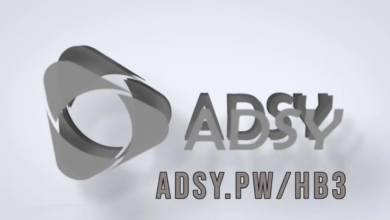The Smoothstack Lawsuit: Examining Allegations and the Fight for Workers’ Rights

In April 2023, Smoothstack, a tech schooling and staffing agency, turned into hit with a category-movement lawsuit over claims that it exploited its employees thru a predatory wage and schooling scheme. The Smoothstack lawsuit highlights critical allegations of salary theft, the usage of Training Repayment Agreement Provisions (TRAPs), and the corporation’s unethical practices in trapping workers into low-salary jobs. With these allegations drawing interest to labor practices in the tech enterprise, this situation has broader implications for the destiny of employee rights and regulatory oversight. This article will discover the important factors of the lawsuit, the legal grounds of the case, and the broader impacts on workers’ rights inside the tech enterprise.
Overview of the Smoothstack Lawsuit
The class-action lawsuit towards Smoothstack was initiated through former employee Justin O’Brien, who accused the organisation of carrying out an exploitative enterprise version designed to trap personnel in low-salary jobs. O’Brien alleges that Smoothstack’s enterprise practices violate labor legal guidelines by failing to pay good enough wages, imposing excessive-fee TRAPs, and retaliating in opposition to personnel who enhance worries.
Key Allegations inside the Lawsuit
Wage Theft: One of the center allegations is that Smoothstack violated wage legal guidelines via now not paying employees for the duration of the initial weeks of mandatory schooling and with the aid of persevering with to pay them subminimum wages for the duration of the employment length. Employees were reportedly paid as little as $7.25 according to hour, even even as running up to 80 hours in line with week.
- TRAPs (Training Repayment Agreement Provisions): Another huge difficulty raised inside the lawsuit is the use of TRAPs. These agreements require employees to complete as a minimum 4,000 billable hours for Smoothstack’s clients, a technique which can take up to 2 years. If employees leave earlier than completing these hours, they’re liable for a $23,875 repayment penalty, which many people claim unfairly restricts their employment mobility.
- Misrepresentation of Job Opportunities: According to the lawsuit, Smoothstack misled personnel by way of promising everlasting tech positions at Fortune 500 groups, however instead located them in temporary roles at consumer organizations without a course to permanent employment. Workers had been paid minimum wage throughout intervals when they have been no longer actively assigned to a client, further exacerbating their financial instability.
Legal Basis of the Smoothstack Lawsuit
The lawsuit brings forth numerous legal claims under the Fair Labor Standards Act (FLSA) and Virginia country laws, targeting wage violations, unfair contractual duties, and unlawful retaliation.
Violations of the Fair Labor Standards Act (FLSA)
The FLSA sets national minimal salary and extra time pay requirements. The lawsuit argues that Smoothstack violated these standards by way of:
Failing to pay employees for mandatory schooling intervals, for that reason violating minimum wage provisions.
Underpaying personnel in the course of paintings assignments and failing to offer additional time pay while employees labored over 40 hours every week.
Unenforceable TRAP Agreements
TRAPs have become more and more arguable as they were criticized for being punitive and unfair. According to the lawsuit, Smoothstack’s TRAP agreements are “unconscionable” and unenforceable under Virginia law, which does no longer allow employers to impose penalties that efficaciously lure people in low-wage jobs.
Smoothstack allegedly makes use of these contracts to prevent employees from leaving for better opportunities, as employees might face an almost $24,000 monetary penalty if they are trying to go out before meeting the desired billable hours.The lawsuit seeks to avoid these TRAPs for all affected employees.

The Broader Impact of the Smoothstack Lawsuit
The Smoothstack lawsuit reflects systemic troubles in the tech enterprise, especially concerning employee exploitation in education applications. Many tech companies rely on settlement hard work, and there was developing scrutiny of their exertions practices, particularly in relation to entry-level personnel.
Exploitative Training Programs within the Tech Industry
The use of schooling repayment packages like TRAPs is turning into more vast, and the Smoothstack case highlights the abuse of those agreements. Such packages were criticized for mirroring “shadow scholar debt”, where employees are sure with the aid of contractual duties that limit their mobility and pressure them into financially risky situations. This case shines a light on the necessity for extra law to guard people in industries where training is required.
Increasing Regulatory Scrutiny
The Smoothstack lawsuit also comes at a time while government businesses, which includes the Federal Trade Commission (FTC) and the Department of Labor, are investigating the legality of TRAPs and different restrictive employment contracts. In truth, the FTC has already proposed banning non-compete agreements, and this lawsuit ought to boost up motion against similar practices in industries outdoor of tech. With the FTC and Consumer Financial Protection Bureau looking into “business enterprise-pushed debt”, the outcome of this case may have a long way-attaining consequences on how groups shape their schooling and reimbursement agreements.

What Happens Next Inside the Smoothstack Lawsuit?
As the lawsuit proceeds, there are numerous potential effects that could have an effect on both modern-day and former Smoothstack employees.
Potential Outcomes for Employees
- Financial Compensation: If the lawsuit is a success, employees ought to obtain reimbursement for unpaid wages, damages for being forced into unenforceable contracts, and probable punitive damages for retaliation claims.
- Reform of TRAP Agreements: A ruling in opposition to Smoothstack may want to lead to the voiding of TRAP agreements for current and former employees. This might save you the enterprise from imposing financial penalties on employees who choose to leave earlier than finishing their billable hours.
- Long-term Regulatory Impact: A victory for the plaintiffs could set a legal precedent, prompting other tech groups to revise or get rid of their training repayment packages. This may additionally push for broader federal rules to prohibit such agreements in other sectors.
Impact on Smoothstack’s Business Model
Smoothstack’s present day enterprise model is based heavily on recruiting, schooling, and putting people at Fortune 500 organizations. If the lawsuit effects in a huge financial penalty or courtroom-ordered coverage changes, Smoothstack may also have to reevaluate its business practices, specially the way it compensates and keeps personnel.

FAQs About the Smoothstack Lawsuit
-
What is the Smoothstack lawsuit approximately?
The lawsuit accuses Smoothstack of carrying out wage robbery, forcing employees into Training Repayment Agreement Provisions (TRAPs), and deceptive them approximately activity possibilities with Fortune 500 agencies.
-
How does the lawsuit declare Smoothstack violated wage legal guidelines?
It alleges that Smoothstack did not pay employees in the course of their initial education and persevered to pay minimum wage during their employment, even when they worked excessive time beyond regulation hours.
-
H3: What are TRAPs, and why are they controversial?
TRAPs are Training Repayment Agreement Provisions that require employees to pay lower back the price in their schooling in the event that they depart earlier than completing a positive wide variety of billable hours. They were criticized as exploitative, as they restriction workers’ mobility and might trap them in low-wage jobs.
-
What ought to appear if the plaintiffs win the case?
If a success, the plaintiffs may want to get hold of lower back wages and damages, even as the TRAP agreements might be voided. Additionally, the lawsuit ought to lead to broader regulatory adjustments regarding such agreements.
-
How can employees stricken by Smoothstack be part of the magnificence-motion lawsuit?
Current and former Smoothstack employees can seek advice from a hard work attorney or be part of the elegance-motion in shape by accomplishing out to the felony firms dealing with the case.
Conclusion
The Smoothstack lawsuit shines a spotlight on exploitative hard work practices inside the tech enterprise, especially the usage of TRAPs and wage theft. This case represents a crucial moment for employees’ rights, because it demands unfair employment contracts and calls for more law to protect vulnerable employees. As the case unfolds, it may not handiest have an effect on the future of Smoothstack however additionally result in broader adjustments in how agencies structure their education programs and employment agreements.
Keep an eye for more news & updates on Evolant Agency!




